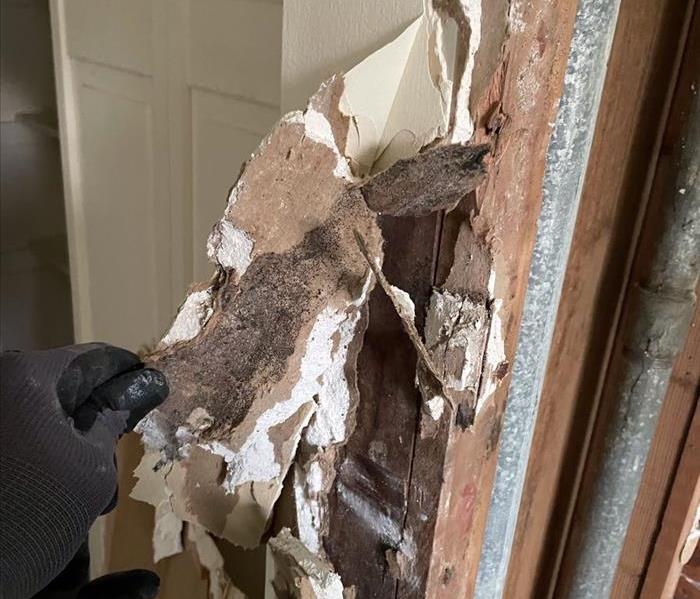A Comprehensive Guide to Effective Mold Removal and Prevention
5/11/2023 (Permalink)
Mold damage can be a serious problem in homes and businesses, as it can cause significant damage to property and be difficult to remove. Mold growth can occur in areas with high humidity or water damage, and it's important to act quickly to prevent the mold from spreading. In this blog, we will discuss the mold damage cleanup and remediation process and how to effectively remove mold from your property.
Assessment and Inspection
The first step in the mold damage cleanup and remediation process is to assess and inspect the property. A professional restoration company, such as our SERVPRO® team, will conduct a thorough inspection to determine the extent of the mold damage and identify the source of the problem. This will involve checking for visible signs of mold growth, as well as using specialized equipment to detect hidden mold.
Containment and Air Filtration
Once the extent of the mold damage has been identified, the restoration company will begin the containment process. This involves sealing off the affected area to prevent the mold spores from spreading to other areas of the property. Air filtration systems may also be used to remove mold spores from the air.
Removal of Mold-Infested Materials
The next step in the mold damage cleanup and remediation process is to remove any mold-infested materials. This may include drywall, carpeting, insulation, and other porous materials that cannot be effectively cleaned. These materials will be carefully disposed of to prevent further mold growth and contamination.
Cleaning and Disinfection
After the mold-infested materials have been removed, the restoration company will begin the cleaning and disinfection process. This involves using specialized equipment and cleaning products to thoroughly clean and sanitize the affected areas. The goal is to eliminate all mold spores and prevent any further mold growth.
Drying and Restoration
Once the cleaning and disinfection process is complete, the affected areas will be dried thoroughly to prevent any remaining moisture from causing further mold growth. The restoration company will then begin the process of restoring the property to its pre-damage condition. This may include replacing drywall, carpeting, and other materials that were removed during the cleanup process.
Prevention
The best way to prevent mold damage is to address any water damage or high humidity issues promptly. This may involve fixing leaks, improving ventilation, and using dehumidifiers in damp areas. Regular cleaning and maintenance can also help prevent mold growth.
In conclusion, mold damage cleanup and remediation is a complex process that requires specialized equipment and expertise. It's important to act quickly to prevent mold from spreading and causing further damage. If you suspect you have mold growth in your home or business, contact a professional restoration company to help safely remove the mold and restore your property to its pre-damage condition.




 24/7 Emergency Service
24/7 Emergency Service
